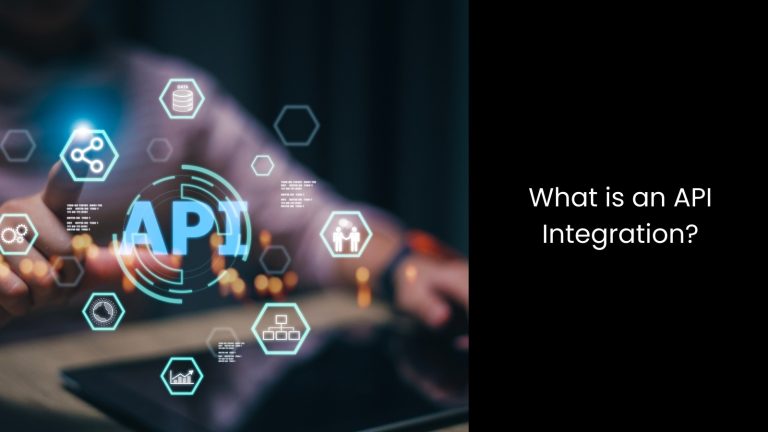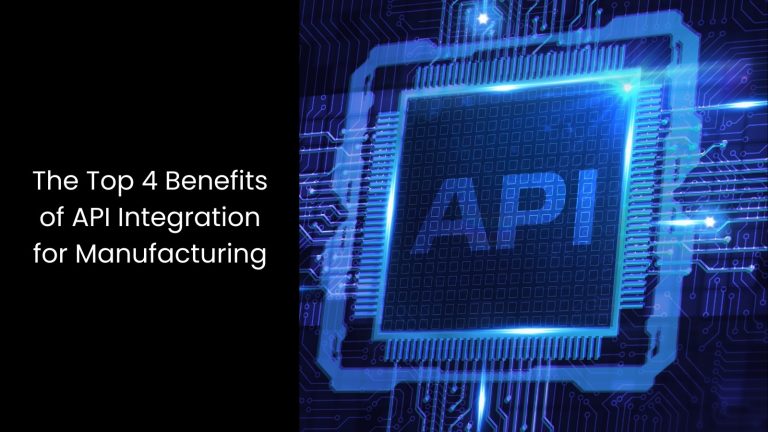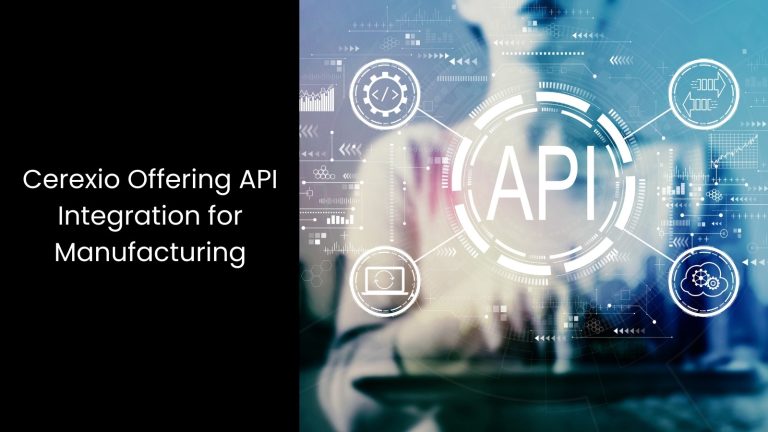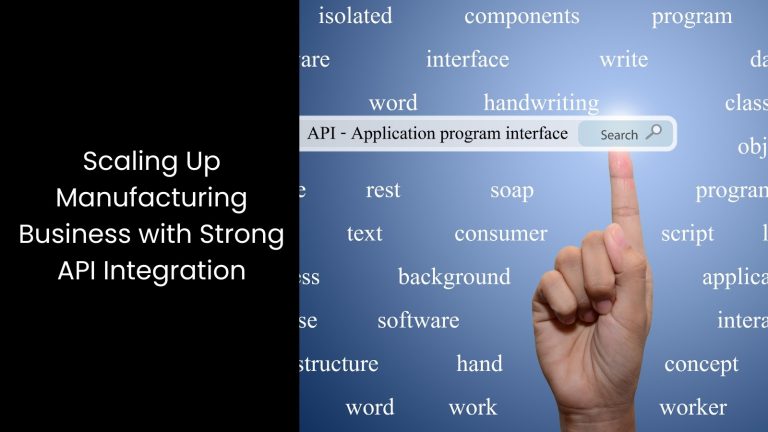Is your manufacturing business struggling to keep up with the rapid pace of digital transformation? We all know that Singapore’s manufacturing sector is the backbone of its economy. But in this hyper-connected world, staying competitive requires more than just skilled labour and advanced machinery. It demands a robust digital infrastructure. This is where API integration comes into play. As it connects different software applications and systems, stepping beyond traditional limitations, APIs can scale up your manufacturing processes easily.
In this article, we are going to explore the best benefits of API integration for the manufacturing industry in Singapore.
We will understand
What is an API Integration?

- An API, or Application Programming Interface, acts like a bridge between different software applications, ensuring they work and communicate with each other no matter their programming languages.
- In the purest sense of the word, it is a set of rules and protocols that apps use to request and exchange data. But why do the systems need this? The main purpose of API integration is to make systems work smoothly together so businesses can use various app functionalities without replacing existing software.
- There are different types of web APIs for various purposes. For example, open APIs create new apps using an organisation’s data or features; partner APIs design unique features with a partner’s resources; internal APIs manage data transmission within different system components; and composite APIs combine multiple APIs into one interface.
- Regarding API integration, you cannot simply miss API protocols. They are strict guidelines that regulate interactions between two parties using an API, making data exchange more efficient.
- Through these protocols and rules, API integration involves connecting multiple software applications using API endpoints. This serves as a gateway for data transmission and defines the data formats and methods the API supports. This integration allows for the exchange of real-time information between software applications.
The Top 4 Benefits of API Integration for Manufacturing

Advancing Business Intelligence
API integration enhances business intelligence for manufacturing companies as it backs up connecting various software applications without any barriers.
It acts as a bridge, allowing different systems to work and communicate with each other, regardless of their programming languages, as we mentioned before. This integration is what encourages the smooth exchange of data, making it easier for companies to analyse and optimise their operations.
Manufacturing companies can use open APIs to create new applications based on their production data, improving efficiency and innovation. On the other hand, APIs allow companies to design unique features by using a partner’s resources, like advanced machinery or specialised software.
Internal APIs help manage data transmission within different parts of the manufacturing process, ensuring that all components work together harmoniously. Another fact is that APIs combine multiple APIs into one interface, simplifying complex operations.
Likewise, when following strict API protocols, manufacturers can regulate interactions between different systems, enhancing efficiency in data exchange. What is more, API endpoints serve as gateways for data transmission. The latter surely defines specific data formats and methods that the API supports. This integration allows real-time information exchange, which is crucial in manufacturing.
For example, a manufacturing plant might use an API to connect its inventory management system with its production line. When inventory levels drop, the system can automatically send a request to the production line’s API to increase production.
Enabling Personalisation in Customer Service
Offering a personalised customer experience in manufacturing is the key to success in this realm because it builds stronger relationships with clients and increases customer satisfaction. Now let us explain how API integration can help with this.
It makes the way for manufacturers to offer personalisation in customer service for a better experience. By acting as a bridge, APIs connect various software applications, allowing them to work and communicate smoothly, and this seamless connection allows manufacturers to access and utilise customer data from different sources, making personalisation possible.
APIs can help create customised applications based on customer preferences and past interactions. It also enables companies to use a partner’s resources to design unique features that cater to specific customer needs. It has internal APIs that help manage data transmission within different parts of the manufacturing process, ensuring that customer requirements are met accurately. Plus, these APIs combine multiple APIs into one interface, simplifying the management of complex customer data.
The real-time information exchange allows manufacturers to provide personalised services quickly and accurately. For instance, a manufacturing company might use an API to connect its customer relationship management (CRM) system with its production line. When a customer places a custom order, the CRM system sends a request to the production line’s API, which processes the order and responds with the production status. This level of powerful integration ensures that the customer’s unique requirements are met efficiently.
Simplifying Complex Processes
You know that complex production processes in manufacturing are challenging because they involve many steps, various systems, and precise coordination. Due to its complexity, many errors can occur easily, causing delays, increased costs, and lower product quality. If you need to manage these chaotic processes, you will need real-time data, accurate communication, and seamless integration of different software applications and machinery. This is where the API integration comes in.
API integration simplifies these complex processes for manufacturing companies by acting as a bridge between different systems. APIs help companies create new applications that streamline specific production tasks. In one way, APIs allow them to use a partner’s resources to improve certain parts of the production process.
In another way, they manage data transmission within different system components, ensuring that every part of the production line works together smoothly. Composite APIs enter the picture next, and they combine multiple APIs into one interface, making it easier to handle complex operations.
Facilitating Data and Functionality Exchange
The latter is quite challenging in a manufacturing landscape due to some barriers like incompatible systems, data lock-up, and communication issues.
This occurs mainly because different manufacturing systems use various programming languages and data formats, making it hard for them to work together. Data lock-ups occur when information is isolated within one department or system, preventing other parts of the company from accessing and using it. When there is a lack of seamless interaction between different software applications and machinery, communication in manufacturing layers might be restricted.
However, it will not be problematic when API integration is available. It helps manufacturing companies overcome these barriers by acting as a bridge between different systems, ensuring they communicate and exchange data smoothly.
Through the use of such APIs, manufacturers can create applications that connect different parts of their operations, making data and functionalities accessible across the organisation. Also, APIs allow them to access a partner’s resources, integrating external functionalities with their own systems. Aspects like internal APIs take care of data exchange within various components of the manufacturing process, ensuring that all parts of the production line work together efficiently, and they combine multiple APIs into one interface, simplifying the integration of complex operations.
Cerexio Offering API Integration for Manufacturing

With Cerexio’s scalable manufacturing technological solutions, it is easy for manufacturing companies to solve these API integration issues now. Since our solutions are backed up by Industry 4.0 capabilities, middleware technology, and advanced networks like 5G, every integration occurs smoothly without disrupting your production processes.
Scaling Up Manufacturing Business with Strong API Integration

If your manufacturing company is seeking ways to scale up its businesses, API integration is something you should ignore. It will impact your whole data management initiatives, and with the right API integration services, you can achieve your business goals without any technical issues.
